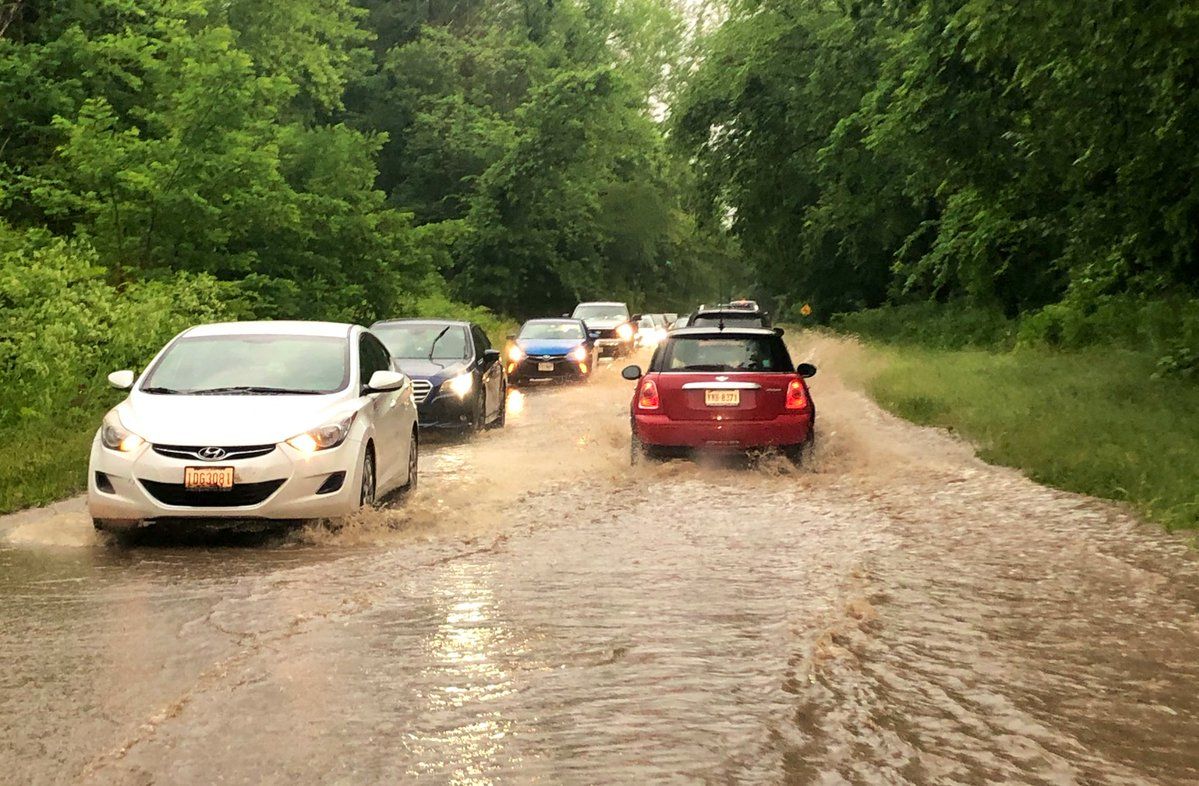This article was republished with permission from WTOP’s news partners at Maryland Matters. Sign up for Maryland Matters’ free email subscription today.

This content was republished with permission from WTOP’s news partners at Maryland Matters. Sign up for Maryland Matters’ free email subscription today.
The Maryland Senate passed what would be the state’s most ambitious climate action plan on Friday with some bipartisan support. The vote was 34-11.
The Climate Solutions Now Act of 2021 aims to curtail Maryland’s global-warming pollution to a level that is 60% lower than it was in 2006 within the next decade. Current law requires the state to set detailed plans and strategies to decrease pollution by 40% from 2006 levels.
To achieve the more ambitious goal, the bill also proposes planting 5 million trees, electrifying the state government’s vehicle fleet, constructing more energy efficient schools, and other efforts. The measure would also create a just transition workgroup for displaced fossil fuel workers and would add new responsibilities for the state’s environmental justice commission.
“We’ve seen islands disappear in the far Pacific and even in our own Bay, about to disappear. This is not anything we can ignore,” Sen. Paul G. Pinsky (D-Prince George’s), the lead sponsor of the bill said on the Senate floor Friday. “We see here Annapolis and in Baltimore, days during flooding, people cannot get to their businesses — it is already starting to affect our economy. It is also affecting our agriculture — farmers on the Eastern Shore are losing acres of crops because of saltwater intrusion.”
“To date, the state has promoted what it feels it’s comfortable doing…not what we need to do. This bill before you is not a radical bill, but it can serve as a pivot point,” he continued.
After 10 failed Republican attempts to amend the legislation on Wednesday, the measure passed in a 34-11 vote, with Sens. Stephen S. Hershey Jr. (R-Upper Shore), J.B. Jennings (R-Harford), Edward R. Reilly (R-Anne Arundel) and Sen. Christopher R. West (R-Baltimore County) voting in favor.
Environmental groups hailed the bill’s passage.
“The science is clear, we can no longer wait to take action against the climate crisis,” Maryland League of Conservation Voters Executive Director Kim Coble said in a statement. “We applaud the Senate for taking definitive action today in support of the Climate Solutions Now Act. This is a huge leap forward in correcting the long standing inequity of climate pollution in communities of color and fighting climate change.”
However, some Republicans renewed their concerns about the bill’s funding source, tree planting program and “ambitious” goals, arguing that it did not line up with the goals of the international Paris climate agreement.
When the U.S. rejoined the Paris climate accord last month, advocates pushed for a target goal of greenhouse gas reductions by 50% by 2030, compared to 2005 levels.
“That’s a big difference,” said Sen. Robert Cassilly (R-Harford).
Sen. Jason C. Gallion (R-Harford) worried that trees planted in agricultural buffer zones would become a habitat for deer, which “are often an enemy to the pocketbooks of the farmer.”
To help fund the bill’s far-reaching proposals, the Climate Solutions Now Act of 2021 would take up to $20 million from the Strategic Energy Investment Fund each year to help pay for replacing the state fleet with electric cars and for school buildings to become carbon neutral or solar-ready. For planting trees, $15 million would be taken from the Bay Restoration Fund annually and $1.25 million from the Chesapeake Bay Trust Fund.
But Republicans took issue with the bill’s mandate to transfer $15 million annually from the Bay Restoration Fund, which they argued was mostly used for local sewer and stormwater projects in rural parts of the state.
“We don’t believe that it is good policy to divert tens of millions of dollars from the Bay restoration fund that are desperately needed to address sewage issues adversely affecting our Bay and our communities,” Senate Minority Leader Bryan Simonaire (R-Anne Arundel) said. “The main issue with this bill is it gives a false narrative that we must choose between planting more trees or protecting local sewage projects in our communities.”
Pinsky argued that the sewage systems are overflooded because of the severe storms caused by climate change. In a previous Senate floor session, Sen. Guy J. Guzzone (D-Howard), the chair of the Budget and Taxation committee, said that wastewater treatment plant projects will still be prioritized under this measure.
Pinsky also highlighted that Valley Proteins, a private company, was recently awarded $13 million from the Bay Restoration Fund to upgrade its wastewater treatment plant, making it the fund’s second largest project. “That’s what’s pushing projects back,” he said.
Ignoring the climate crisis now will lead to even larger costs in the future, Pinsky contended.
“Addressing climate change has upfront costs, but failing to address climate change — those costs are likely to be much greater and long lasting,” Pinsky said. “This is truly a small cost to taking needed action and pivoting to treating this very serious problem today in 2021.”
Sen. James C. Rosapepe (D-Prince George’s) said considering the ambitious climate proposals that will be issued soon by the Biden administration, Pinsky’s legislation is relatively modest.
“This is a very good start, but we got to be ready to go big,” he said.
Senate President Bill Ferguson echoed those sentiments in a news conference later Friday afternoon.
“Climate change is not a partisan issue,” he said. “It’s a major existential challenge.”
While most of the public action on the climate legislation has been in the Senate, the House environment subcommittee continued discussing the House cross-file this week. Next week is the last chance to vote it out of committee before crossover day, March 22, when bills need to pass one chamber to guarantee consideration in the other.
eshwe@marylandmatters.org







